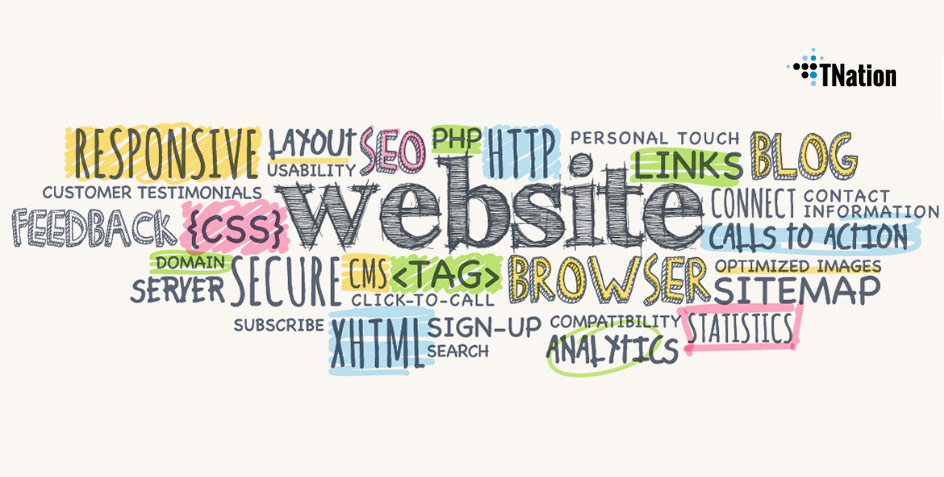You might remember the past when someone visited a website only to realize pop-ups were appearing everywhere. In the early days of the Internet, lay users would hastily fire up their antivirus programs to check if anything from the website had taken residence in their computer.
Although today it may seem a funny thing to do, security and privacy concerns are still at an all-time high. With data breaches and online scams becoming increasingly common, customers are more cautious than ever about sharing their personal information online.
Hence, as a business owner, it’s crucial to understand the importance of building trust with your customers through privacy. By prioritizing privacy in your website design, you can protect your customers’ personal information and improve their overall experience.
In this article, we’ll explore how website design can benefit your customers by building trust through privacy. So, let’s dive in and discover how to leverage website design to build trust with your audience.
Why Privacy is Important in Website Design
Google’s research on 20,000 Europeans has proven that people browsing company websites and feeling that the same business is providing a poor privacy experience would react similarly.
According to this research, they’re less likely to trust a brand with their data. For businesses, the negative impact of a poor privacy experience is equal to a data breach. In addition, almost half of the respondents claim they would turn to the second-best brand in no time if they had an excellent privacy experience.
Hence, privacy is an essential factor in website design.
A website that prioritizes privacy can create a secure and trustworthy environment for customers to engage with your brand. It’s important to remember that customers are often hesitant to share their personal information online.
Those people visit the website for the first time, and you ask them for their email or something else. It’s hardly likely to happen to give your phone number to someone you don’t know. It’s the same with sites you visit. By respecting their privacy, you can build trust with your audience and create a positive brand image.
Privacy is also becoming increasingly important due to changes in data privacy laws. In addition to legal compliance, privacy can also have a significant impact on your website’s performance. Customers are more likely to engage with a website that they trust. By prioritizing privacy in your website design, you can create a positive user experience that encourages customers to interact with your brand.
How Privacy Concerns Affect Customer Trust
Privacy concerns can have a significant impact on customer trust. For example, customers are increasingly wary of sharing their personal information online due to the prevalence of data breaches and online scams. As a result, they may be hesitant to engage with websites they perceive as unsafe.
Privacy concerns can also damage a business’s reputation. Customers who don’t trust your brand are less likely to engage with your products or services. This can lead to a decrease in sales and revenue.
On the other hand, a website that prioritizes privacy can help build trust with customers. By being transparent about your data collection practices and implementing secure browsing protocols, you can create a safe and trustworthy environment for customers to engage with your brand. This can lead to increased engagement, brand loyalty, and, ultimately, higher revenue.
In other words, when customers feel in control of their data, they can experience increased trust in the brand. This trust is caused by more than implementing the privacy tools. It goes beyond the cookie preferences and the ability to unsubscribe from email marketing. It means letting people know exactly how their data is collected and used to increase the customer’s experience.
The Benefits of Building Trust Through Privacy
Building trust through privacy can have benefits for your business. By creating a secure and trustworthy environment, you can improve the following:
Customer Engagement
One of the main benefits of building trust through privacy is increased customer engagement. Customers are more likely to engage with a website they perceive as safe. By prioritizing privacy in your website design, you can create a positive user experience that encourages customers to interact with your brand.
Brand Loyalty
Another benefit of privacy practices that are meaningful, memorable, and manageable help brands give people a feeling of control. In turn, it boosts brand trust and marketing effectiveness. Customers are more likely to continue engaging with a brand that they trust. By prioritizing privacy in your website design, you can build trust with your audience and create a positive brand image.
Revenue
Finally, building trust through privacy can lead to higher revenue. Customers are more likely to purchase products or services from a trustworthy brand. By prioritizing privacy in your website design, you can create a positive user experience that encourages customers to engage with your brand and purchase.
Elements of a Privacy-Focused Website Design
A website design that caters to users’ privacy needs should prioritize protecting customers’ personal information. Businesses can achieve it through various elements, including secure browsing protocols, clear privacy policies, and data collection transparency.
#1 Browsing Protocols
Secure browsing protocols are one of the essential elements of a privacy-focused website design. This can include using HTTPS encryption to protect customers’ personal information and implementing two-factor authentication to prevent unauthorized access.
#2 Clear Privacy Policy
A clear privacy policy is also essential for a privacy-focused website design. Your privacy policy should clearly outline your data collection practices and how you use customers’ personal information. This can help build trust with your audience and ensure compliance with data privacy regulations.
#3 Data Collection Transparency
Finally, data collection transparency is essential to a privacy-focused website design. Customers should know what data they collect, how it’s used, and who it’s shared with. Being transparent about your data collection practices can build trust with your audience and create a positive user experience.
Examples of Best practices for Privacy-Focused Website Design
There are several best practices to follow when designing a privacy-focused website. However, recent studies by Google turn to the techniques that appeal to users and affect business conducting it. So, according to the global tech behemoth, it comes down to several methods:
- How and how often do users want to receive a reminder of their privacy settings
- Sending privacy digest via email
- Providing a benefit for users that personalizes the website
- Asking for consent to personalize the website
- Treating customer data in an honest way
- Asking customers to select their interests
- Asking customers to confirm these interests
- Reminding customers that they receive personalized offers
These practices can help customers build their trust in your brand and therefore decide to spend more time with your business than the competitors. If you look at it, putting yourself in the customer’s shoes is the best starting point when building a website design that focuses on users’ privacy. It gives you an advantage over competitors and builds trust with the market.
The Impact of GDPR and CCPA on Website Design
The GDPR and CCPA have had a significant impact on website design. These regulations require businesses to be transparent about their data collection practices and give consumers control over their personal information.
To comply with the GDPR and CCPA, businesses must prioritize privacy in their website design. It can include implementing secure browsing protocols, being transparent about data collection practices, and providing clear privacy policies.
Failure to comply with the GDPR and CCPA can result in significant fines and legal issues. However, by prioritizing privacy in their website design, businesses can ensure compliance with these regulations and avoid potential legal problems.
Conclusion: The Importance of Prioritizing Privacy in Website Design
In conclusion, prioritizing privacy in website design is essential for building customer trust. Think of it as an investment that will bring more customers and maintain the existing ones for a significant period. By implementing best privacy practices businesses can create a safe and trustworthy environment for customers to engage with their brand.
Privacy is becoming increasingly important due to changes in data privacy laws, such as the GDPR and CCPA. By prioritizing privacy in their website design, businesses can ensure compliance with these regulations and avoid potential legal issues.
Finally, by creating a positive user experience that prioritizes privacy, businesses can build trust with their audience and create a positive brand image.





